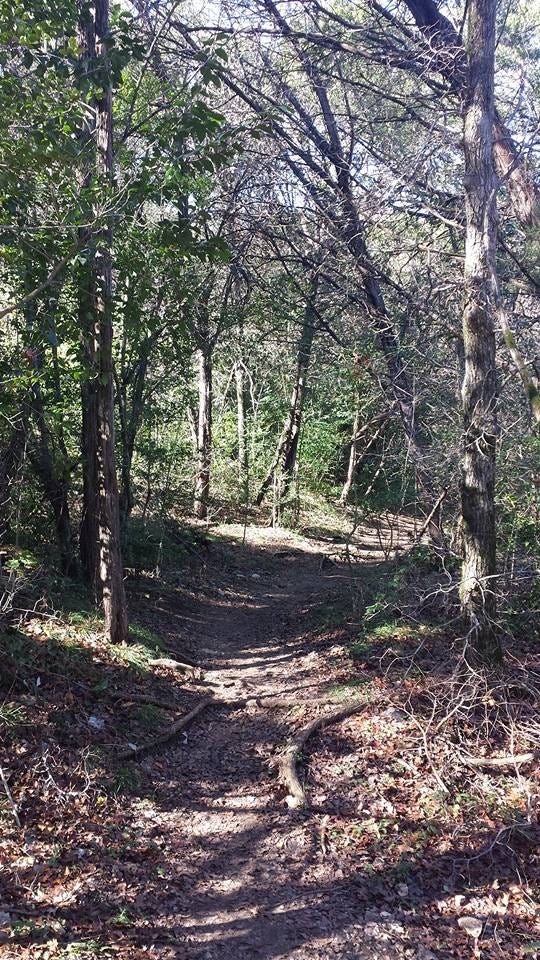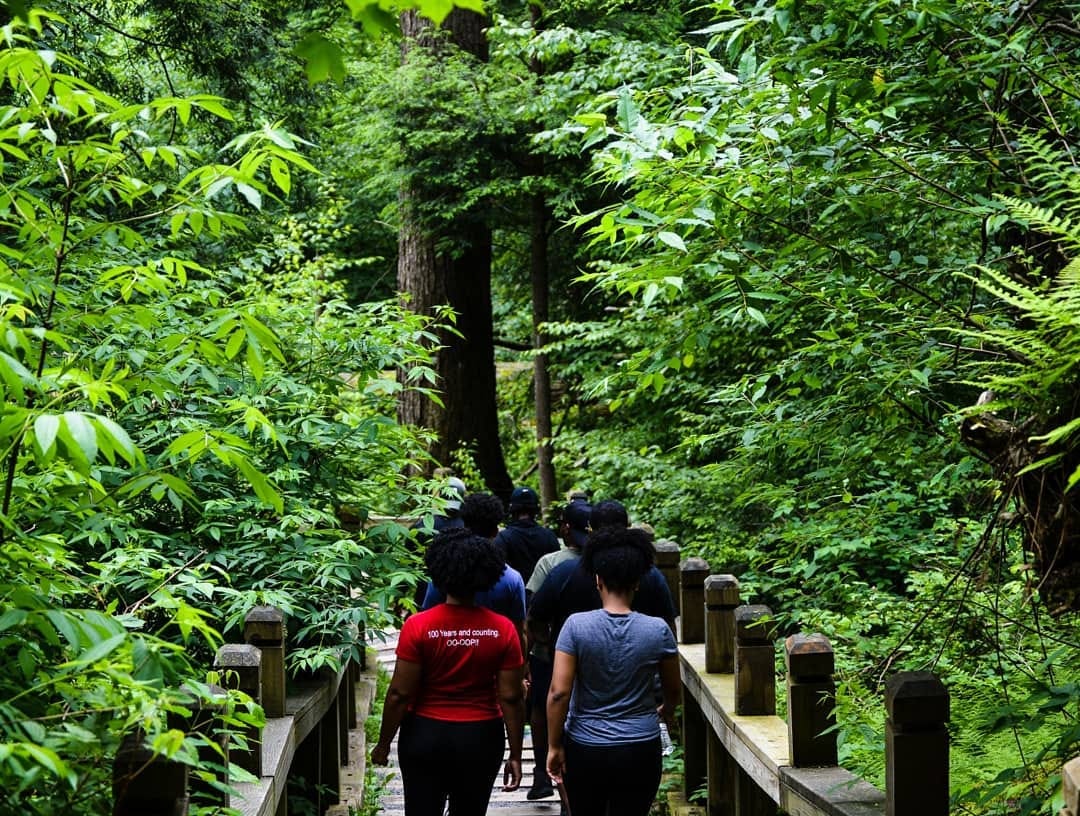The Threshold
Personal reflections on liminality, ritual, and Black American ecstatic experiences

Be patient toward all that is unsolved in your heart and try to love the questions themselves, like locked rooms and like books that are now written in a very foreign tongue. Do not now seek the answers, which cannot be given you because you would not be able to live them. And the point is, to live everything. Live the questions now. Perhaps you will then gradually, without noticing it, live along some distant day into the answer.
- Rainer Maria Rilke
In case you missed the announcement last week, I have wonderful news: we exceeded our goal of 100 subscribers on Substack! In May, I set the intention to welcome 100 subscribers by my birthday on Juneteenth, and we did it! Thank you for helping make this one of the best birthdays I’ve ever experienced. Here’s to celebrating even more milestones with you in the future 🥂
In an earlier dispatch, I shared my thoughts about living in a liminal space. I’m moving through big questions right now, which is leading to internal pressure to have myself “together” in a way that isn’t feasible or even necessary in this period of time. I’ve learned to be at peace with the results of change: please refer to my mutable Sun sign and every single time I have invoked the sacred name of Octavia E. Butler in my writing. However, liminality, that dangerous intermediate space between changes, makes my ass itch. For all my astrology gworls, the angles in my natal chart are the cardinal signs, meaning I want to do something: initiate change, solve a problem, get the people going…
This state of psychosocial limbo feels precarious because it is. As defined by cultural anthropologist Victor Turner, liminality is a state of in-betweenness that represents a dangerous deviation from the status quo and is characterized by the loss of a sense of community and structure. Per Turner, the threshold between safety and peril can be resolved only through the emergence of communitas, a sacred, loosely structured community of peers who heed the counsel of elders to pass through the ritualistic gateway.1 I often attempt to avoid or rush through the discomfort of emergence by trying to force outcomes or decisions, thus only heightening anxiety. My intuition knows that this liminal experience threatens my undoing if I don’t have the community necessary to usher me through this transformation.2

The following is a modified excerpt from a term paper I wrote about a funeral that I attended last year. I’ve recently mentioned losing four people in the span of a year, and the “Ritual and the Embodied Mythic Imagination” course that Dr. Emily Lord Kambitsch taught last spring revealed itself as a balm for processing one of the more traumatic losses. All names have been removed to protect my family’s privacy as much as possible while simultaneously honoring my experience as an attendee. Writing that paper offered the medicine I needed to reflect on the beauty of liminality as reflected in the praise break, which has long been my favorite part of Black church services. My hope is that sharing this excerpt honors both my family and the indeterminacy of my current experience.
Modified from Meditations on Grief, Joy, and Liberation in Black Ecstatic Experiences by Jasmyne Gilbert (April 2023)
I observed multiple praise breaks and altar calls during the funeral service. Those praise breaks were the most compelling part of the program and they most clearly represented the cathartic, ecstatic experiences that are characteristic of Black Christian worship services described by Moore and Bryant, who state that a key function of the funeral director is to cultivate a “dramaturgically compelling service that promotes emotional expression through an emphasis on spirituality and interpretive ritual” (602).3 Over the three-day funerary process I began to worry about my aunt because I didn’t see her cry at the wake or even as the funeral procession began; she was stoic and consumed with her hosting duties since loved ones gathered at the family home every day throughout the ritual experience. I know that manifestations of grief are many, but I couldn’t help being concerned that we were depriving her of the opportunity to process the emotions compelled by the murder of her youngest child and only daughter. Then the first praise break began and my worry abated.
In my experience the praise break is an ecstatic encounter in Black churches characterized by improvised music during which congregants dance, jump, clap, run, speak in tongues, and cry out in worship of God. The Macmillan Encyclopedia of Religion describes ecstasy as a religious or spiritual experience of the divine (2678)4, but where I’m from we call it “shouting” or “catching the Holy Ghost”.5 It almost always happens after a musical performance when the pastor, praise leader, or choir director improvises about the anointing God has placed on the lives of those present. This portion of church service has fascinated me since I was a child, and it was a welcome relief to witness the presence of the divine wash over my aunt. Though most everyone in the congregation participated in the praise break’s singing and clapping during the funeral, only a small community of congregants, including my aunt, experienced the bliss of divine union. These shouters formed a community which occupied the liminal space between worlds, an experience which was overseen by spiritual elders and hosts like the funeral director and eulogist. Sadly, I have never experienced that kind of ecstatic union with the numinous. If merely witnessing it excavates some of the deepest recesses of my emotional well, I can only imagine how beautifully rending it is to be overcome during that emotional sparagmos.6
I’m not sure of the appropriate way to close this essay. Perhaps it makes sense to point out that one may offer the critique that my paper assumes the disembodied posture of the observer, the very critique that Caroline Walker Bynum levies against Turner.7 They may further state that my account of the funeral lacks the anecdotes that Yvonne Chireau prioritized in her research about Black American supernatural traditions.8 I would not deny these critiques. This paper is a retrospective first-person reflection on one family’s grief ritual, thus it would have been inappropriate to conduct interviews with funeral goers about their ecstatic experiences. Scholarship about the Black ecstatic tradition was difficult for me to find easily, so one day I might find it compelling to contribute to that field of knowledge. I know with certainty that the funeral service’s praise breaks delivered welcome cathartic tears for me and helped ease my anxiety about my aunt’s stifled grief. During those praise breaks I saw miraculous joy on the faces of Black people as they were washed in the boundless love and magnificence of the creator. I want that for us on this plane.
Note: This post contains affiliate links. If you choose to purchase any of the reference materials in the footnotes, using the affiliate links will give me a small commission on your purchase.
Turner, Victor W. “Liminality and Communitas.” Readings in Ritual Studies. Edited by Ronald Grimes. Prentice Hall, 1996, pp. 511-519.
Personal reminder to finally read bell hooks’ Communion after comps are done this summer.
Moore, James L., III, and Clifton D. Bryant. "Black Funeralization and Culturally Grounded Services." Handbook of Death and Dying, edited by Clifton D. Bryant, vol. 2: The Response to Death, SAGE Reference, 2003, pp. 598-603.
Sharma, Arvind. "Ecstasy." Encyclopedia of Religion, edited by Lindsay Jones, 2nd ed., vol. 4, Macmillan Reference USA, 2005, pp. 2677-2683. Gale eBooks.
See “HOLYGHOST SHOUTING!” YouTube, YouTube, 7 Mar. 2011. (EMBEDDED IN POST)
Weaver, Benjamin. “Euripides’ ‘Bacchae’ and Classical Typologies of Pentheus’ sparagmos, 510-406 BC.” Bulletin of the Institute of Classical Studies, vol. 52, 2009, pp. 15–43.
Bynum, Caroline Walker, “Women’s Stories, Women’s Symbols.” Readings in Ritual Studies. Edited by Ronald Grimes. Prentice Hall, 1996, pp. 71-82.
Chireau, Yvonne, “Our Religion and Superstition Was All Mixed Up: Conjure, Christianity, and African American Supernatural Traditions.” Black Magic: Religion and the African American Conjuring Tradition. University of California Press, 2005, pp. 11-33.




I believe what we call ‘catching the Spirit’ is simply expressing with our bodies, what is often suppressed. It has to come out of us. It’s trapped energy that must be released.